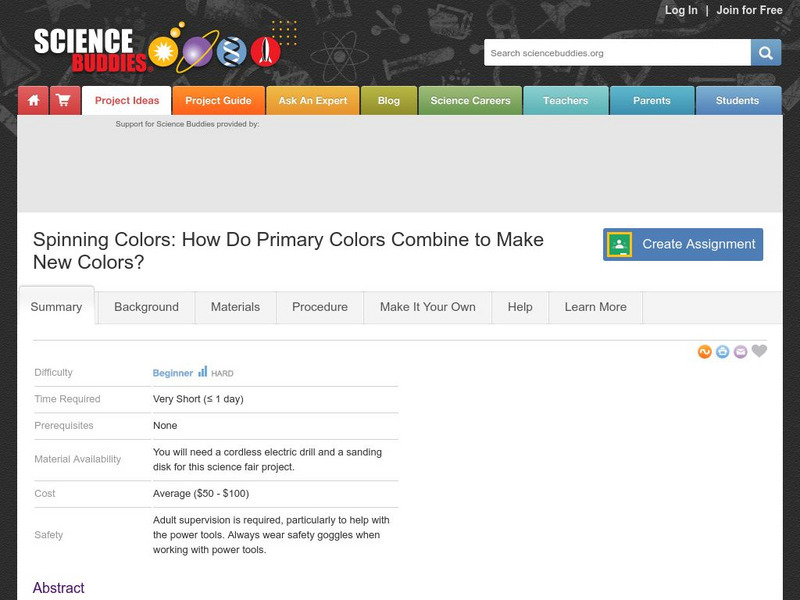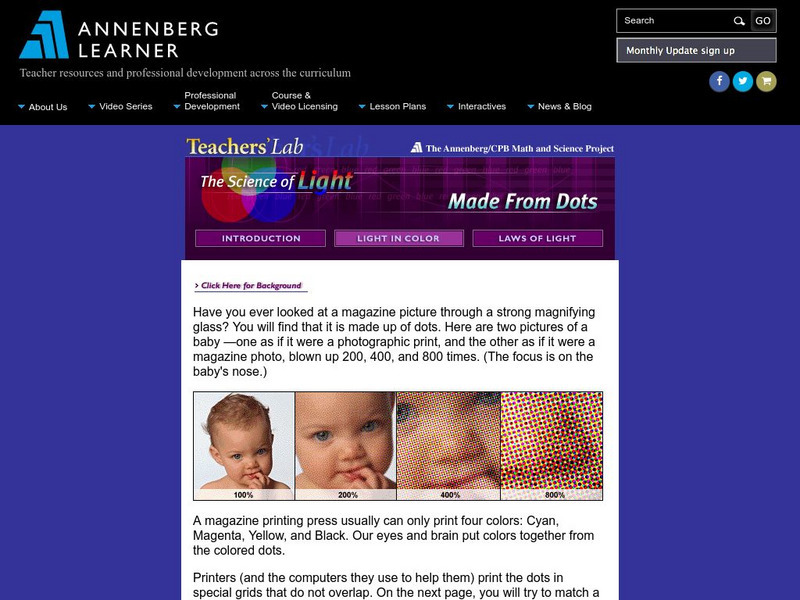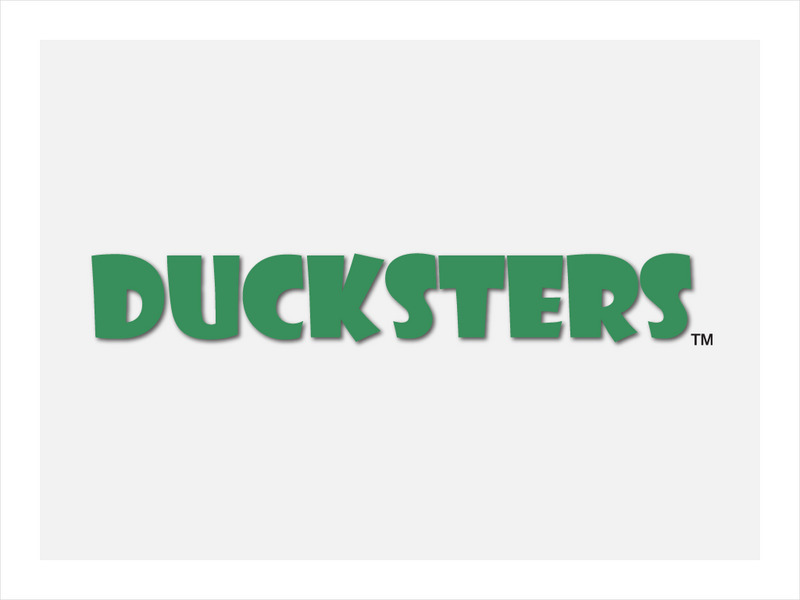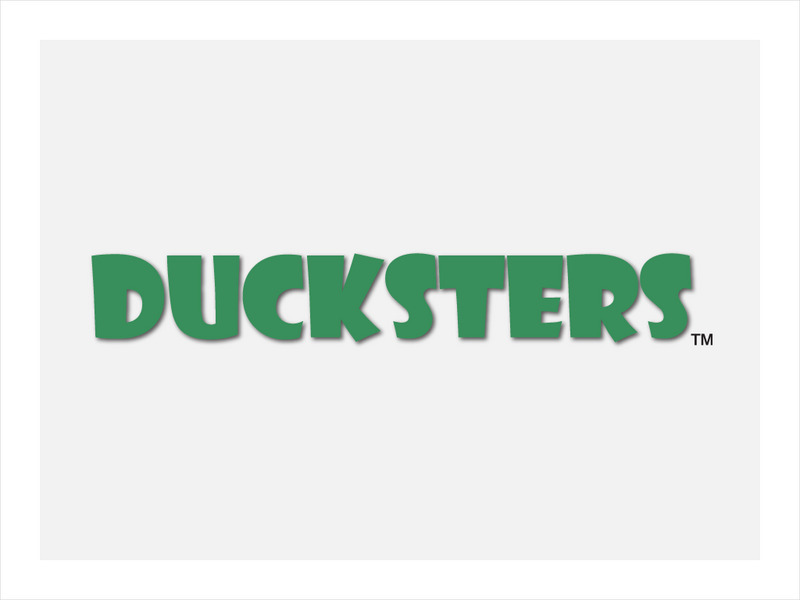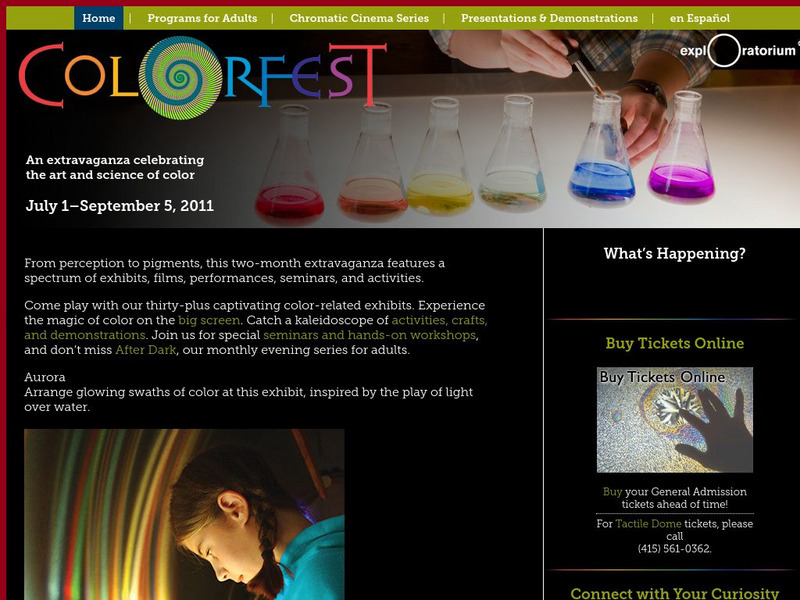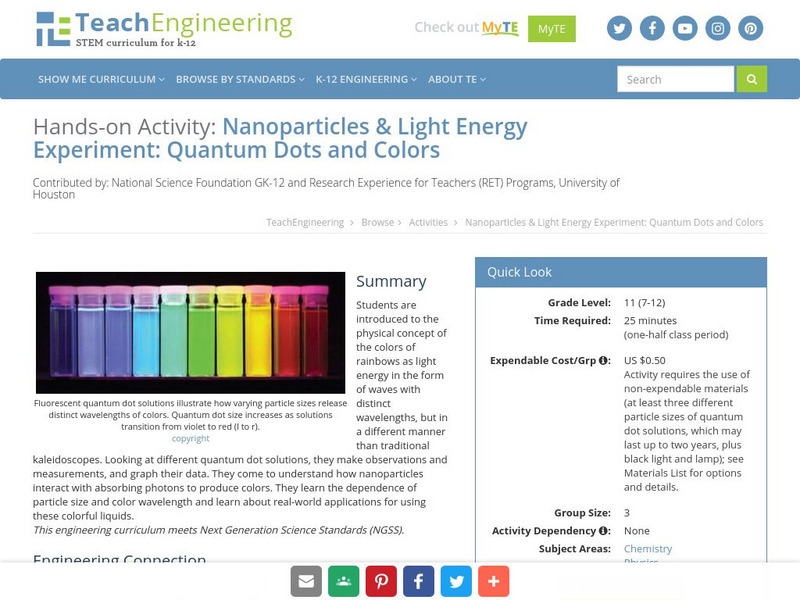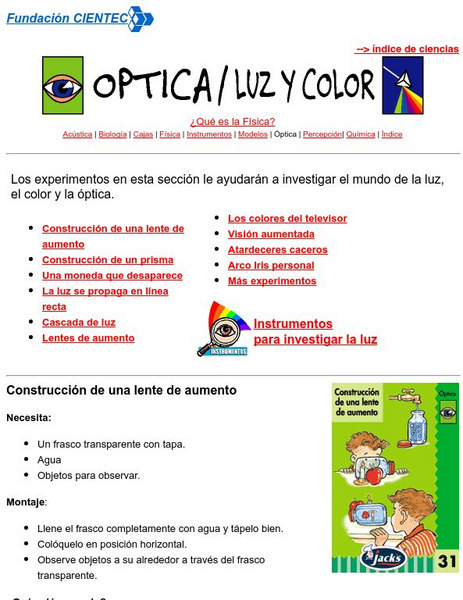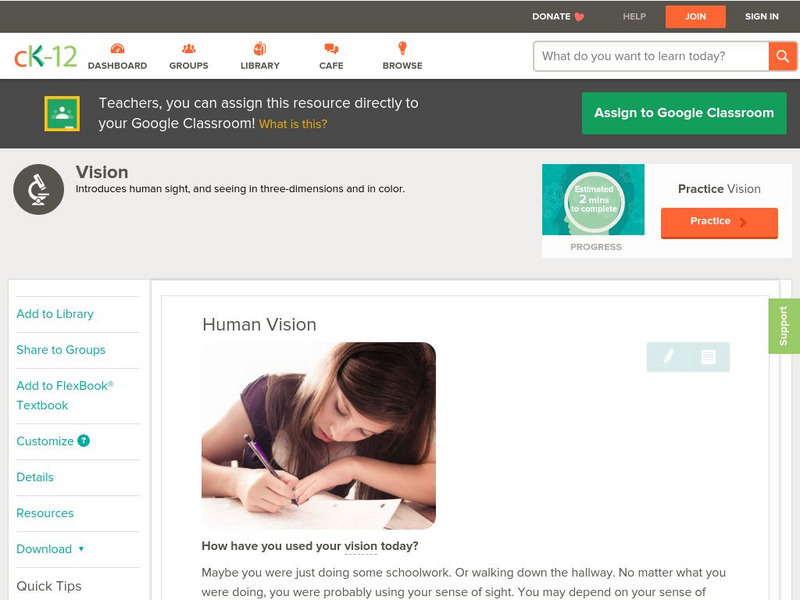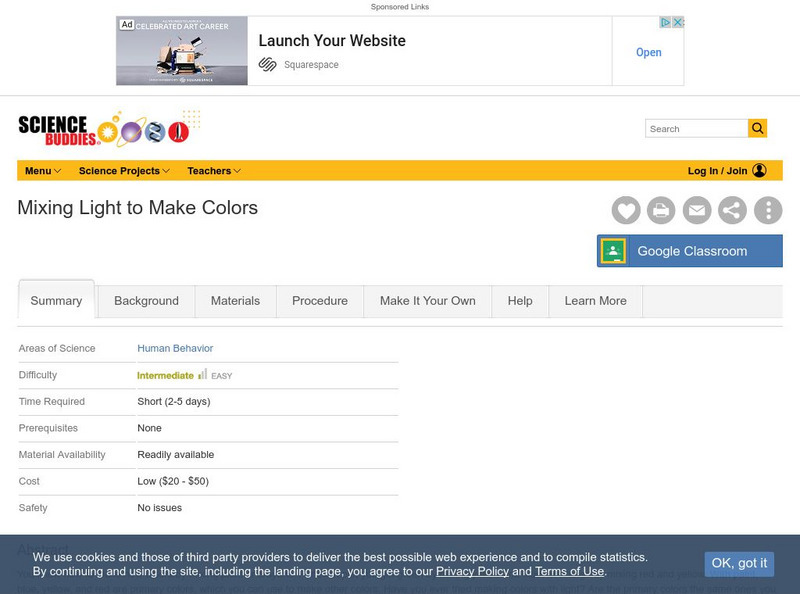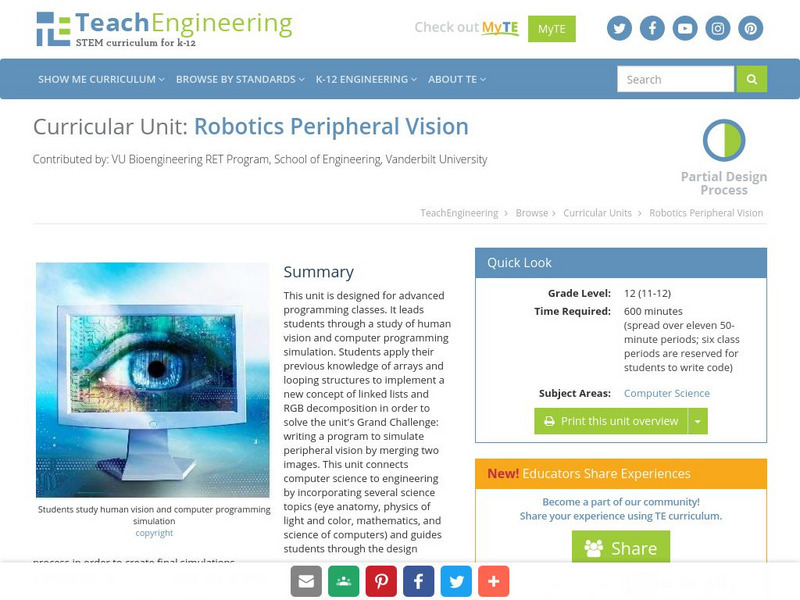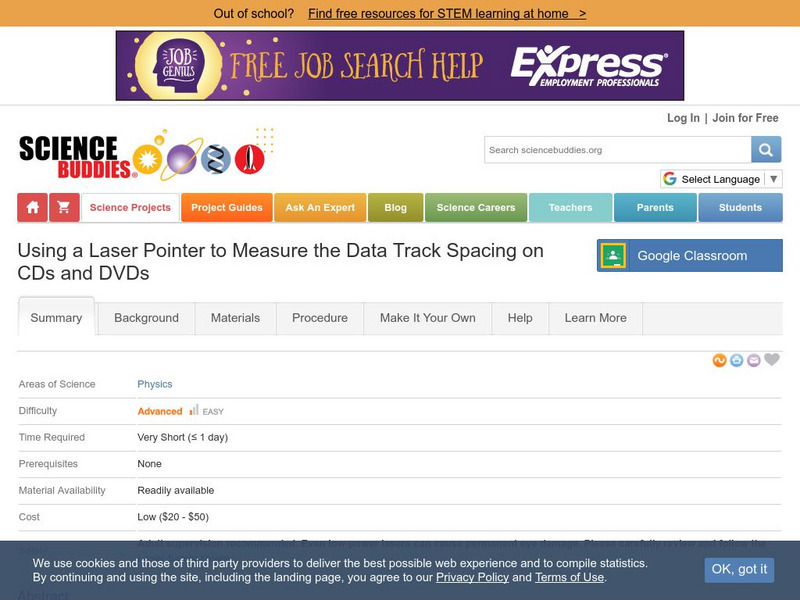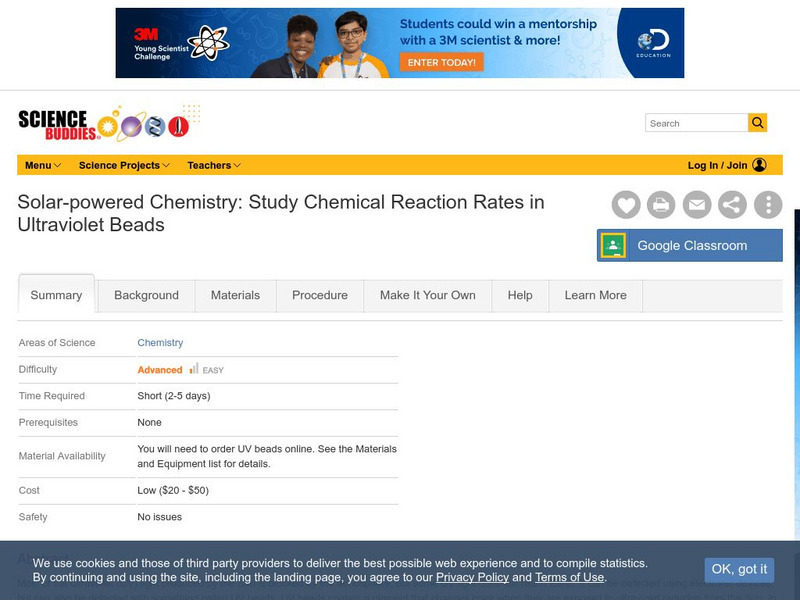Project Britain
Primary Homework Help: Color Investigation Puzzle
Try making words on the screen disappear by changing the background color of this page. Add or subtract red, green, or blue, and see how light is made up of many different colors.
Science Buddies
Science Buddies: Project Ideas: How Primary Colors Combine to Make New Colors
In this science fair project, paint color pie slices onto a wheel and spin the wheel on an electric drill. See how colors add together to make new colors. The Science Buddies project ideas are set up consistently beginning with an...
Science Struck
Science Struck: Visible Color Spectrum Wheel
A brief explanation of the visible color wheel.
Annenberg Foundation
Annenberg Learner: Made From Dots
Notice how magazines print photos using dots made up of percentages of only three colors and black. Try your hand at using percentages of cyan, magenta and yellow to match the magazine color displayed.
Ducksters
Ducksters: Practice Science Questions: Easy Light, Sound, Color
Test your knowledge of light, sound, and color with these practice science questions.
Ducksters
Ducksters: Practice Science Answers: Easy Light, Sound, Color
Take this quiz that contains basics questions on light, sound, and color.
NASA
Nasa: Tour of the Electromagnetic Spectrum: Visible Light
Visible light waves are the only electromagnetic waves we can see. We see these waves as the colors of the rainbow. Each color has a different wavelength. Red has the longest wavelength and violet has the shortest wavelength. When all...
Exploratorium
Exploratorium: The Art and Science of Color
This series of programs includes hand-tinted archival films, contemporary offerings by local artists, and films created by artists drawing and painting on the film surface itself. Featuring animated, documentary, and homemade works.
TeachEngineering
Teach Engineering: Quantum Dots and Colors
Students are introduced to the physical concept of the colors of rainbows as light energy in the form of waves with distinct wavelengths, but in a different manner than traditional kaleidoscopes. Looking at different quantum dot...
Fundación Cientec
Cientec: Optica, Luz Y Color
Different step by step experiments in Optics, Light and Color. These experiments will help the students to investigate the world of light, color and optics.
CK-12 Foundation
Ck 12: Life Science: Human Vision
[Free Registration/Login may be required to access all resource tools.] Sight, or vision, is the ability to see light. It depends on the eyes detecting light and forming images. It also depends on the brain making sense of the images, so...
Science Buddies
Science Buddies: Mixing Light to Make Colors
You know how to make new colors by mixing paint or crayons. For example, you get green by mixing yellow and blue, or orange by mixing red and yellow. With paint, blue, yellow, and red are primary colors, which you can use to make other...
Art Institute of Chicago
Art Institute of Chicago: Education: Science, Art, and Technology
Six different on-line lectures, with accompanying lessons and project ideas, that discuss the link between art and science.
Optical Society
Optical Society of America: Exploring the Science of Light: What Is Optics?
A collection of tutorials and interactive resources, from basic to advanced, that explain concepts related to the science of light.
TeachEngineering
Teach Engineering: Robotics Peripheral Vision
This unit is designed for advanced programming classes. It leads students through a study of human vision and computer programming simulation. Students apply their previous knowledge of arrays and looping structures to implement a new...
Creative Science Centre
Creative Science Centre: Led's
There are so many different types of LEDs on the market (even of the same size and color), how do you tell the difference between them and which one you should use for your particular application? The simple tests descibed here compare...
Science Buddies
Science Buddies: Using Laser Pointer to Measure Data Track Spacing on C Ds, Dv Ds
You've probably noticed the colorful patterns "reflecting" from the shiny surface of a CD disk. What you are seeing is actually diffraction of white light, and the rainbows of color are diffraction patterns. In this project you'll learn...
Science Struck
Science Struck: Color Spectrum Chart With Frequencies and Wavelengths
Read about the visible light spectrum and learn the frequencies and wavelengths for each of the primary and secondary colors.
Annenberg Foundation
Annenberg Learner: Colored Shadows
Manipulate dual shadows and learn why different types of shadows are cast.
Science Buddies
Science Buddies: Project Ideas: Chemical Reaction Rate in Ultraviolet Beads
In this science fair project, experiment with the role temperature plays in the rate at which UV beads lose their color. The Science Buddies project ideas are set up consistently beginning with an abstract, objective, and introduction,...
Exploratorium
Exploratorium: Science Snacks: Colored Shadows
Learn about additive mixtures in this activity. Understand how your rods and cones work together to see color.
Science Struck
Science Struck: Light Microscope vs Electron Microscope: A Comparison
Looks at the differences and similarities between a light microscope and an electron microscope. Discusses their structure, how images are formed, their resolution and magnification, how color is manifested, their portability, cost, and...
Utah Education Network
Uen: Enlightening Explorations, Part Iii
This activity contains the following labs: Rainbows, Refraction with Prisms, and What Color Is It? Students will study light by reading various nonfiction texts and viewing a video activity. Then students will engage in the following...
National Science Foundation
National Science Foundation: Fluorescent Coral
Justin Marshall researches fish and invertebrate color vision, color communication, and visual ecology of coral reefs and other habitats. He photographed this fluorescent coral under fluorescent lighting conditions

